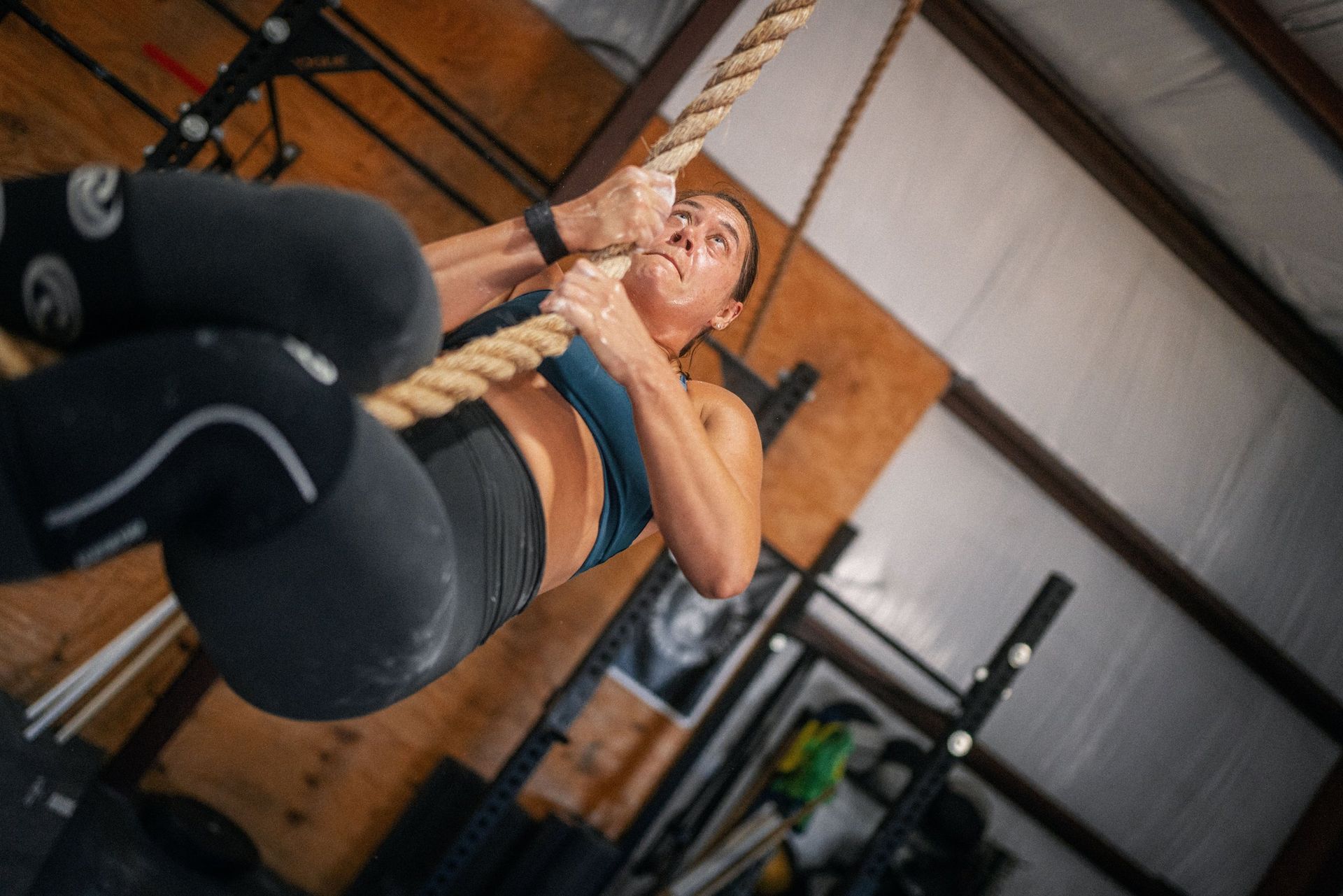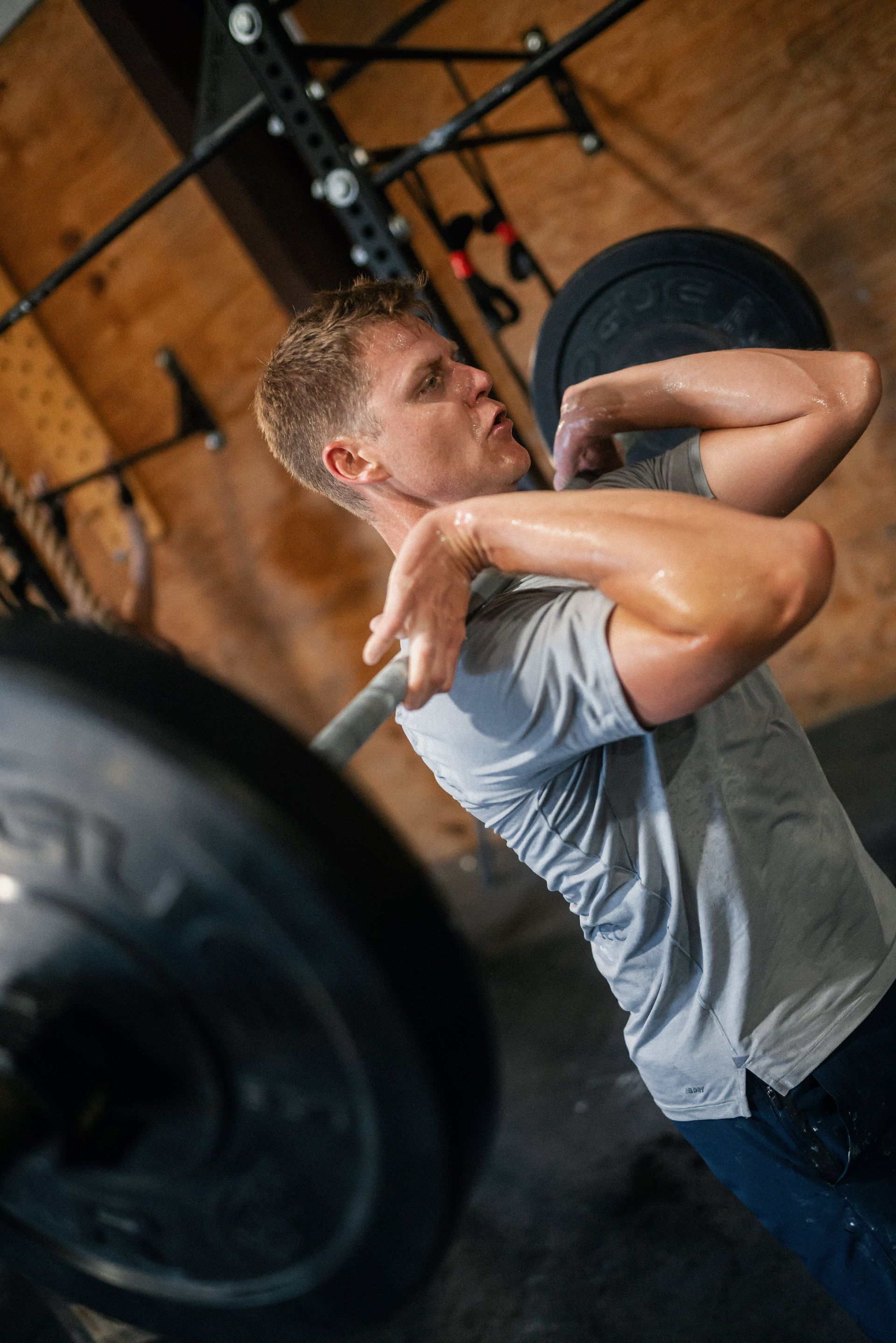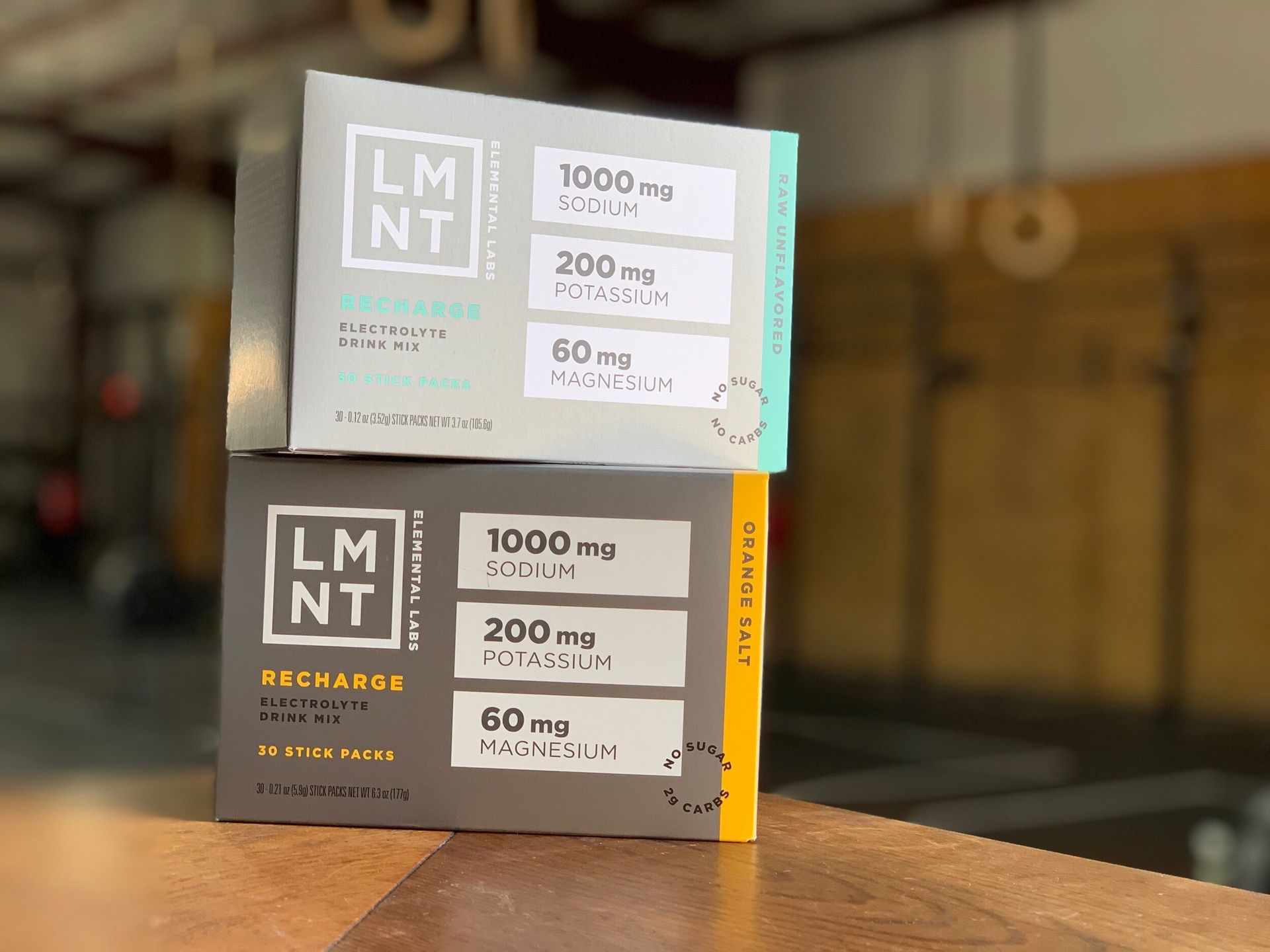An Injury is an Excuse, not a Reason
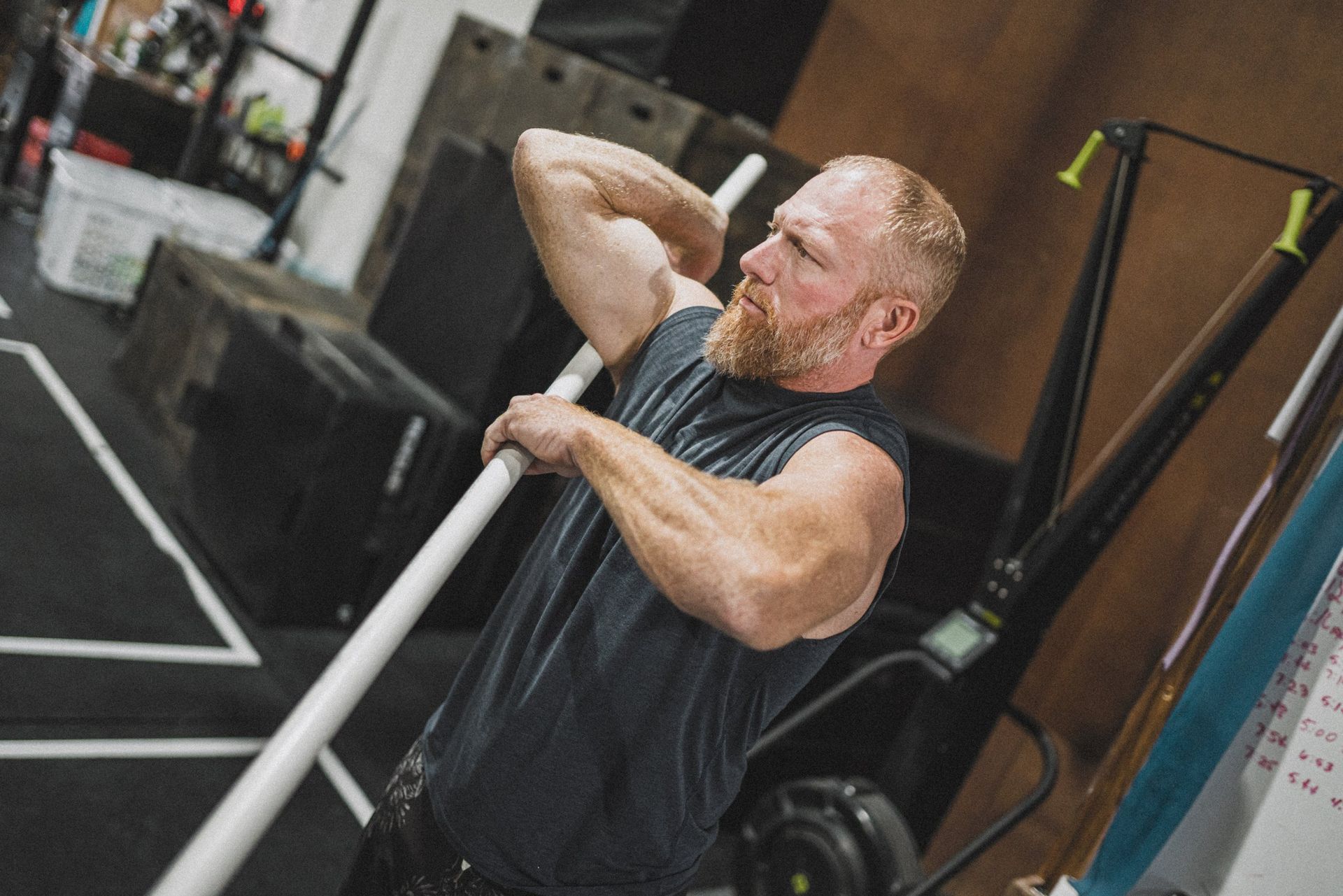
You may or may not have noticed that my name has not been on the Whiteboard as much for a little while. I’m happy to say that should be changing soon. I put a LOT of time, thought, and energy into the programming of the workouts we do in class, and I love (and hate) doing them. However, the 8:30am class knows this does not mean I haven't been working out! I've just been doing unique variations of the class WOD like all of you have needed to do at times when you have an injury.
Injuries are an inevitable part of an active life. When they happen, the goal should always be to learn from them in order to avoid repeating the same mistake and/or minimizing others in the future. Show me someone who has never been injured and I will show you someone who has never gotten close to their physical potential or achieved a high level of overall fitness.
Whether it is a twisted ankle, a pulled muscle, or something more serious, when you are working out near your threshold you are by nature pushing your physical limits. There are some of us who are much better at pushing those limits while not crossing the line very often. I tend to cross it occasionally....
But having said that, an injury is simply not a reason to stop working. It does however make the best excuse so you don't have to feel guilty about not working out. "I can't work out because I have (insert injury here)". This is not a true statement.
Let me use a couple of examples to make my point.
If you have an injury in your mouth, do you stop eating? If you have a sore tooth, or bit your tongue, or burned the roof of your mouth, or have a sore jaw, do you stop eating? No, you find a way around it. Maybe you drink liquids for a while. Maybe you only eat soft things. Maybe you only eat cold things. It depends on what the problem is, but you find a way around it. We need to eat. And we LIKE to eat.
If you are having trouble sleeping (a common issue), do you give up on sleeping? You can't. It's not an option. Many will try to self-medicate in various ways or change their sleeping environment or change their behavior, but we NEED sleep to survive.
I would argue (and win the argument) that working on your fitness is just as necessary as eating or sleeping. It just takes longer to catch up with you than it does with the other two. When you don't have one or either of those, you stop functioning quickly. By comparison, the decline is more gradual with fitness, but the fix takes longer too. You can eat again or get some sleep and very quickly feel the difference. Improving your fitness is a slower process.
My latest injury was completely my fault. I consciously try to learn from both my mistakes and successes, and I learned from this one as well. From a personal fitness standpoint, my forties have been a journey of learning what work I should be doing that day and what work I don’t need to force myself to do. I have gotten better at modifying my workouts to work around joint or tendon issues I am having at that time. The “Sweat” options we now have for class are a byproduct of this journey. What I still need to get better at is during a workout knowing the difference between pain I should ignore and pain I should listen to. I have taught myself to accept that once a workout starts, pain is a constant feeling until it’s done. This doesn’t necessarily mean that I’m miserable. Sometimes I’m miserable but usually it just feels like work getting done, and it feels really satisfying. However, at times I need to be a little more conscious of what I am feeling and know when it is the kind of pain I should listen to and adjust my behavior immediately. This was one of those times.
I want to give some specific examples here to make sure there isn’t any confusion on the point I am trying to make. My latest injury was a herniated disc. This is a very limiting injury but by no means does it have to stop me from continuing to train. I just needed to be creative. I haven’t been running or rowing, but I have used the bike a lot (ugh). I haven’t been doing any heavy deadlifts or squats, and if you know me at all you know those two movements are my idea of a good time. I have been doing lots of upper body pushing and pulling in positions where my back does not have to stabilize. To get my heart rate up, I just keep throwing that damn bike into the mix.
Injuries have caused me to make gains in other aspects of my physical fitness I would have never made otherwise. I have learned to enjoy the process of figuring out how I can challenge myself in new ways when I cannot train like I normally do. This journey has not been a straight path. It curves and there is a lot of backtracking. But I can look back and see that I’ve come a very long way. If I’d just sat down and waited every time I had an injury I would never have gotten this far.
If you have a rotator cuff injury, then this is not the time to work on muscle-ups or snatches. But there are no limitations to what you can do with your midline and lower body. If your knee hurts you may need to lay off the squatting movements and/or lunges for a while, but there is no limit on your pull-ups, push-ups, and sit-ups; and depending on what type of knee injury it is, usually either rowing or biking is fine.
My point is that no matter what the injury is, there are for sure some movements you should avoid, but there is also no end to the number of exercises that still are available to you. It may not always be obvious what movements are available to you, but that is where your friendly neighborhood CrossFit trainer comes in handy. I love the challenge of figuring out how to work around a physical limitation. Use your injuries to learn about your body and improve your training. Use them to push your body in ways you hadn’t thought of or had previously avoided. Using injuries as a reason to take a vacation from your physical fitness is kind of like eating a whole cake when you are lonely. It doesn’t help and it sets you back even further.
-Dan
